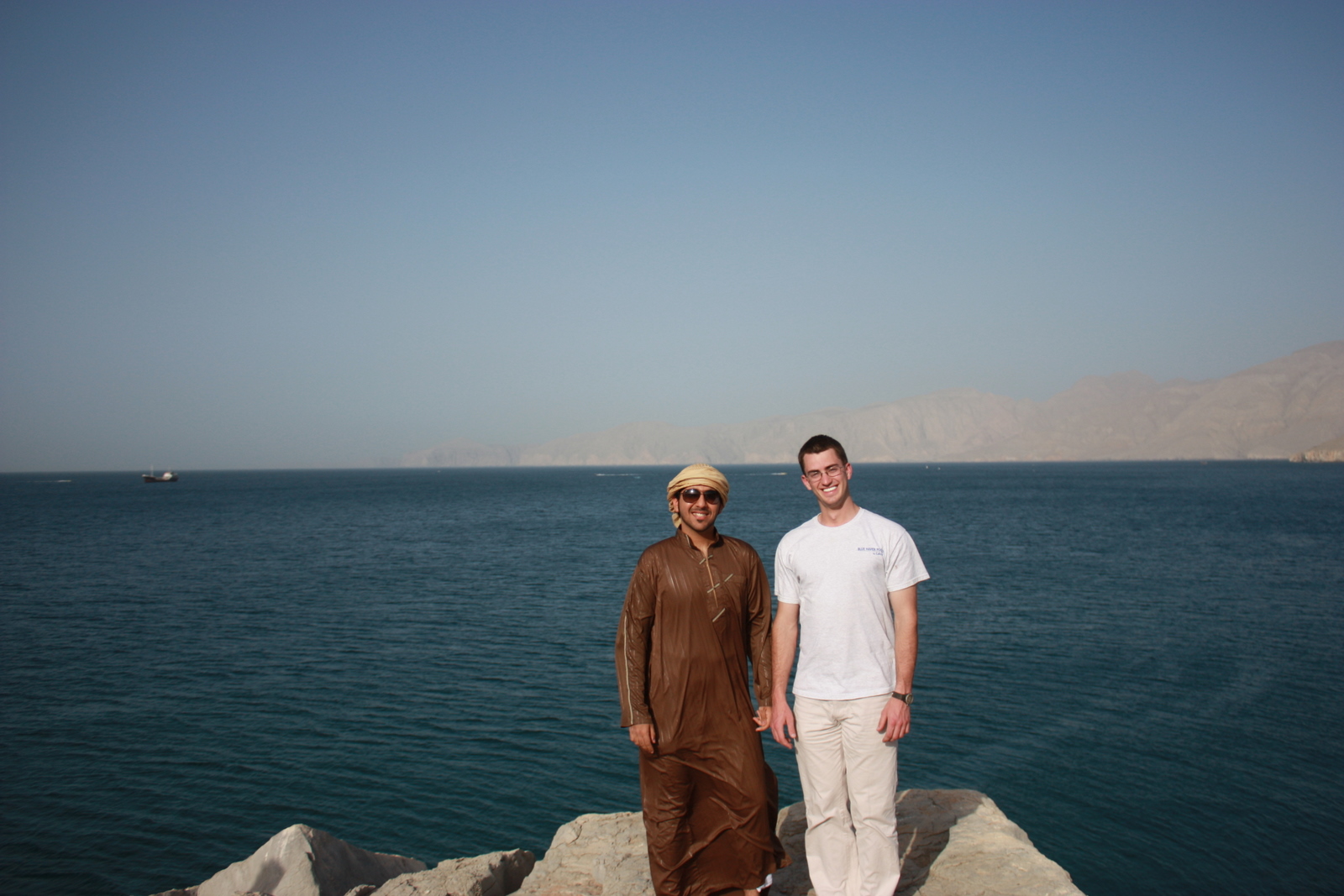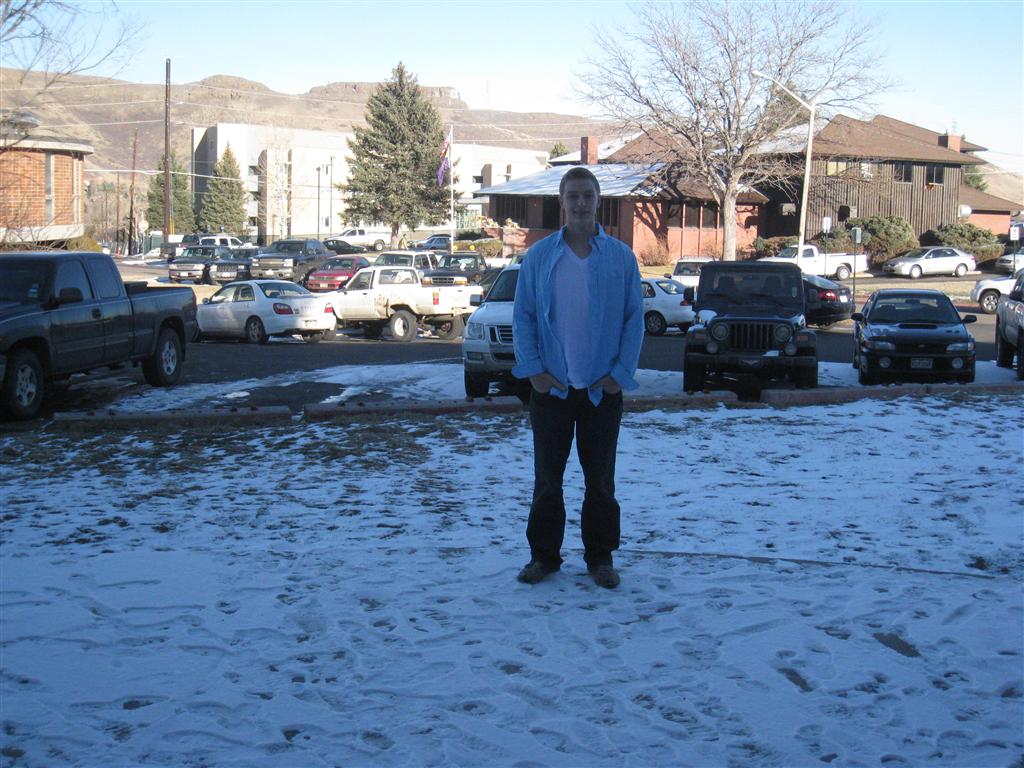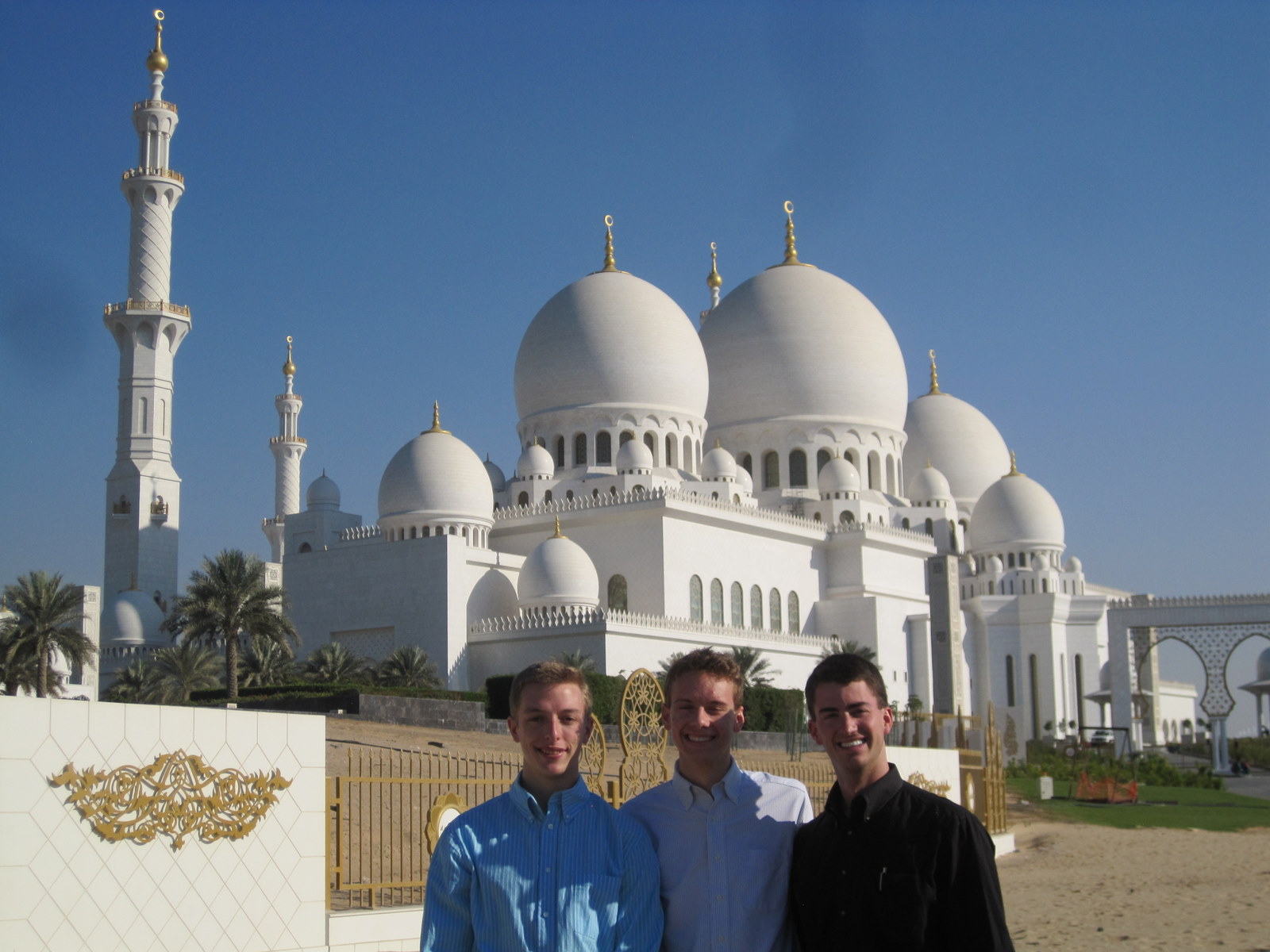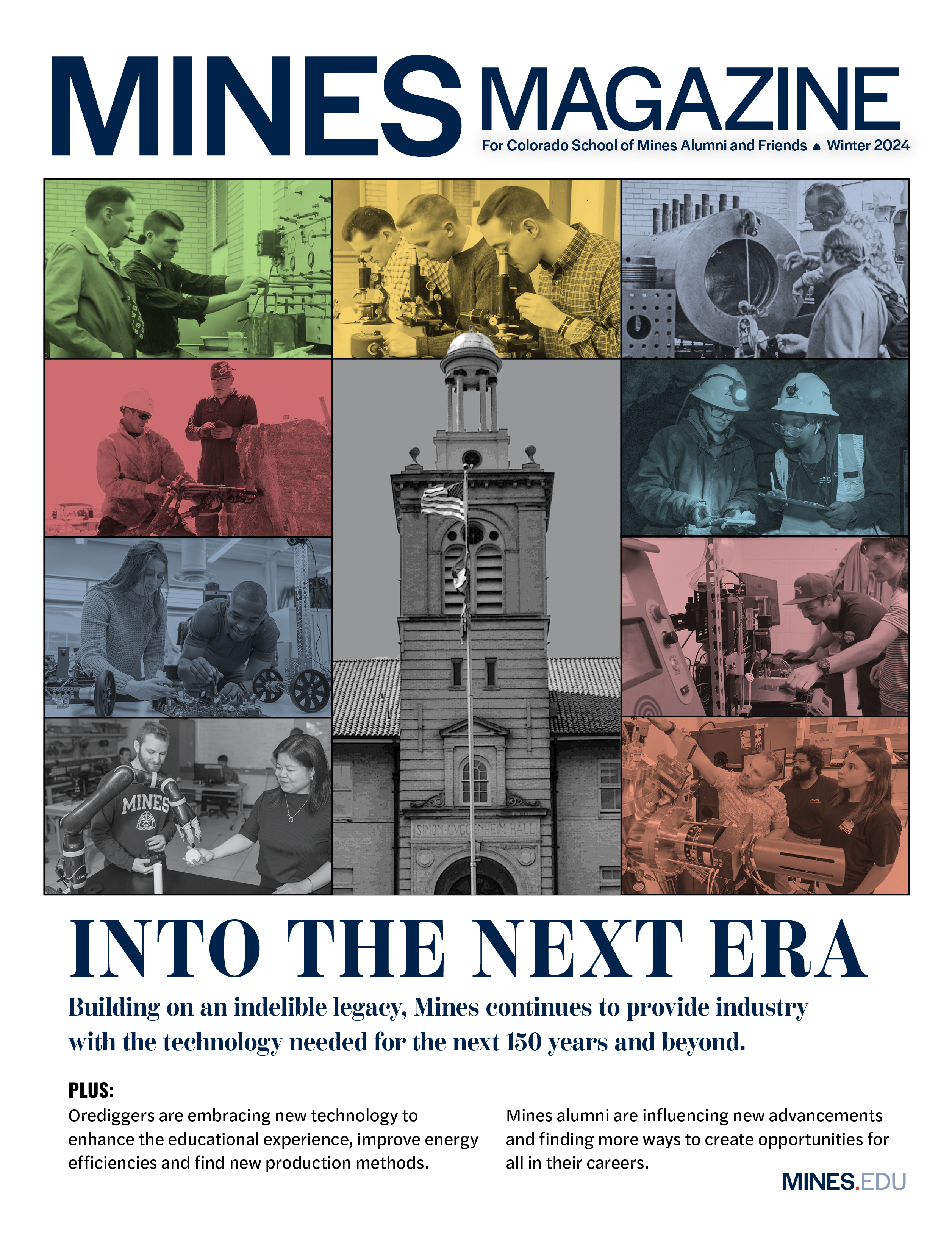First, thank you to all who commented and the many more who read the last post. I had no idea that would be any sort of magnum opus, and�insh�allah, subsequent posts can keep up! Let me go into some detail about each of the places I�ve been since my last post.
If my trip to Al Ain, detailed in my last post, was categorized as �travels as a poor, starving college student,� the most recent trip to Khasab and Ras Al Khaimah would be �travels as and with Emiratis.� Translation: not poor, and very far from starving, but still in collegiate style. Mohammed Alzaabi, a fellow junior petroleum engineering student, asked me if I would like to join him and a group to go to Khasab. I had mentioned earlier that I was hoping to see as much of the Emirates as possible, so this wasn�t completely out of the blue. Of course, in my new academically unburdened self that I never got in touch with at Mines, I gratefully accepted.
Mohammed drives a 2010 Chevy Silverado short bed, crew cab pickup (see photos). In fine style, although at the unfine hour of 5 a.m., Mohammed picked up Saeed, Ahmed and I in front of the Oasis on campus. We purchased some breakfast, and then barreled down the highway to Ras al Khaimah (RAK), where Jasim and more friends would meet us for the trip to Oman. The high speeds attained in the Toyota en route to Al Ain were exceeded on this journey while I was sleeping, Alhamdulillah.(Alhamdulillah means, �Thanks be to God.� It is, like “insh�allah”�and “khalas”��enough,� �all right, then� used with great versatility. Example, but all in Arabic: -How are you? �Alhamdulillah. Or: -How was your vacation? �Alhumdulillah, great, thanks. Most commonly used as a reply to, �How are you?�)
Instead of taking the main coastal highway, we took a more inland route, and saw several camels behind the fence on the side of the highway. They provided the perfect excuse for a photo and stretch break to get all of us over the hump of grogginess from our early departure.
After a brief round of visits with the entire group in RAK, the caravan consisting of a Toyota FJ Cruiser, Toyota Land Cruiser and Chevy Silverado bombed on down to the Omani border/UAE exit checkpoint. Traveling with a group of Emiratis is a wonderful experience. The Gulf politeness and composure really came through. The routine was the same for the exit and entry checkpoints on either border: drive up to checkpoint, roll down window, �Salam Alaykum� (with a slightly longer �s� than normal), some remarks in Arabic, a brow furrowed in pensiveness enough to evoke genuine concern for the other person, some slight head bobbing, and a calm and orderly exchange of papers, IDs, etc. Everything is cool and collected, and I am included in the group.
After another hour along the coast (the Musandam Peninsula) we arrived in Khasab. Instead of putting ourselves on an already scheduled dhow cruise, this group rented its own dhow for the next several hours. On the dhow, we went fishing (little more than dropping calamari-baited hooks into the water off a reel no rod) and then swimming, when I swam into a jellyfish and got stung many times. We spent the day visiting, talking, swapping stories and taking in the sun.
On our return to shore, Easa (Arabic for �Jesus�) invited the whole lot of us to his house in RAK for dinner. Easa is a fellow classmate at the PI, a senior in petroleum engineering. While Abu Dhabi boasts museums, universities, shiny skyscrapers and endless foreigners, RAK is 50% (+/-10%) Emirati, and the beloved home of a number of PI students. It is like Al Ain in terms of size, but is also graced by a decent ruminant population: cows, bulls and goats meander the streets, and right up to the border.
Dinner was a true cultural experience. We were welcomed by Easa outside, and walked into his majilis(sitting room) together. The equivalent of our living room, this rectangular space had a continuous window seat around its perimeter, thick pillows as backrests, heavy red and gold curtains that match the seating fabric, and a slightly vaulted ceiling with indirect fluorescent lighting. The nine or so of us removed our shoes at the door and sat down. Easa, meanwhile, brought in the coffee, tea and dates.
This dinner was true Emirati/well-bred Gulf hospitality that I had read about so much. Our host made several circles of service around us:
1. Distribute the small coffee cups.
2. Pour everyone a cup full of coffee. Recipients say thank you and drink while the host continues around the group.
3. The host continues around the group, refilling cups until the drinker tips his cup side to side to indicate he is done.
4. Cups are collected and put on the central tray. Host returns with a box of dates and walks around the group offering them. Guests sit on the cushions talking to one another (or in my case, asking Alzaaib many, many questions about procedure and tradition).
5. Tea is distributed in a similar fashion, albeit this time with little teacups and saucers.
6. Visit, BS (play video games in this case, which I don�t think Sheikh Zayed did in his time).
7. A mat is rolled out on the floor and a tray of food arrives seafood with all the necessary accoutrements. Everyone sits down on the floor, plates get distributed, and we dig in. I asked for a fork, but partly because of the food that was served and partly just the way it�s done, man�s opposable thumb is the fork/spoon/knife of choice.
8. Finish eating. If you can get up, go have a seat again. The host then comes with a tray of perfumes that people spray on themselves. He makes his round.
9. Host arrives again with what looks like a wood chip or a little piece of bark smoking, only this costs a lot more, smells wonderful, and comes from Cambodia. He carries it in front of everyone, who get a few seconds of wafting smoke all over. If you�ve got your ghutra on, waft the smoke into the fabric.
10. Say, �Akram k�Allah.� The gist of this is, �May God be generous to you as you have been to me.�
At this point, we piled into the vehicles and headed back to Abu Dhabi. I was grateful to be included on the outing, and especially grateful for dinner and the no-questions-asked hospitality.
If you have the choice to fly on Etihad Airways for a marginally higher price, do it. The planes are new, seatback TVs large, music selection extensive and international, food quite good, and flight attendants very attractive. On my 4-hour flight to Almaty, Mathilde was my French flight attendant: pretty, polite and very pleasant smelling. If foxy flight attendants are not the only reason you fly, the low change fees and high ticket flexibility should be enough to convince you. I digress�
I flew into Almaty, Kazakhstan, where I met my friend and Mines alum, Khadisha. We were in several classes together before her graduation, and somehow the idea cropped up to visit Kazakhstan during vacation while I was in Abu Dhabi. Our tour of Kazakhstan included visits to Kulsay lake, Charyn Canyon, Almaty, Turkestan and the Mausoleum of Khoja Ahmed Yasawi, Shymkent, Aksu Zhabagly, lots of tea, and even more bread. I�ll spare you the minutiae, and make some general observations instead.
Kazakhstan was a member of the USSR and became independent in late 1991. It is the ninth-largest country by land area, has a population density slightly more than Canada, and has enormous natural wealth,including oil. It is a land-locked country: Water that falls in its borders stays in its borders. No downstream consumers. It is the breadbasket of Eurasia, a producer of high-quality wheat. As a former Soviet country, there is a culture of education instilled in most of the citizens.
Almaty and Shymkent are great cities. I preferred the smaller size of Shymkent, but Almaty is a modern, vibrant city. There are big shopping malls; lots of citizens have excess money to spend on consumer goods, as well as the occasional Lexus or Mercedes that would drive by. New, trendy coffee establishments are popping up, and a very new and very shiny metro system connects key parts of the city. The tree-lined streets, mountain views, and free interaction of men and women, rich and poor, Kazakhs and Russians, were all refreshing to see after several months in the UAE.
Let me break some of the edges on this diamond that I have made Kazakhstan. It�s still some sort of gem, but not in the pure carbon realm just yet.
Thankfully, my trip included a decent amount of travel outside of the cities. All the destinations I mentioned earlier are great visits. The Mausoleum in Turkestan presented a mix of history, architecture, and moderately developed tourist facilities, and was easily accessible by train. Aksu Zhabagly had tremendous natural beauty, and a trip there means a nice tour of the countryside as well.
To leave city limits in one�s rear-view mirror is to go back in time 20-40 years. Within the city, there are some signs of an active flux capacitor. The queue at a traffic light might include a new silver Lexus, BMW, maybe a Toyota of some sort, and most definitely a late-�80s E-Class Mercedes. On the street corner, women wearing trendy leather boots with well made-up faces wait while texting on their Blackberries and iPhones. The light turns green, people walk, cars move and an old Soviet-era public bus with a hand-painted destination sign and a diesel that burns more oil than fuel lurches forward. Behind it could be a Lada, or perhaps another Soviet jalopy.
Leave city limits, and the vehicle breakdown is as follows: 35% old MB E-Class, 35% Lada, 14% old VWs, Toyotas, Opels, etc., 15% heavy truck traffic (old, oil-burning, but miraculously still running), and 1% new luxury cars (a rarity). I mentioned the breakdown of the automotive fleet; perhaps it would be more relevant to mention the breakdown of the roads. Potholes vary in diameter from 6 to 30 inches and in depth from 3 to 10 inches. The percentage of road surface in the U.S. or UAE that is marred by potholes is in the 0.001% range. In Almaty and Shymkent, the percentage is probably 3%, and in the countryside, I estimate it to be at least 20%. There are no remaining lane markers, so a sinusoidal path is most common for drivers, with some variation for oncoming traffic and particularly deep or extensive potholes.
The villages are different from small-town America. There are no white picket fences, manicured lawns or ranch-style homes with swing sets in the backyard. All houses have several bovines and chickens in the backyard, a pile of hay and some rusty old Soviet-era cars and trucks. Still, every now and then, a shiny, new vehicle rests peacefully in these out-of-place surroundings. There is clearly new wealth coming into this country.
People everywhere were purposeful and proud to be Kazakh. And, rather unusual after the demographic breakdown of the UAE, most people were Kazakh. There were white people like me, but they were Russian. My white teeth and American grin made me stand out. One lady asked if my teeth were fake.
Here�s my view of Kazakhstan in short: a resource-rich country with relatively few fears of attack from outside or within, blessed with tremendous land area and a population that wants to improve the country. Fears of Iran, a trade deficit with China, a stagnant GDP, Islam extremism and resource scarcity are not on the country�s mind. Nowhere to go but up�Alhamdulillah!
France
Copper wire was invented when two engineers were fighting over a penny, and I must have been one of them. The original plan was to go to Georgia (the country), as it was the cheapest European country to visit from Abu Dhabi the flight and five nights would have cost less than $600 easily. However, following discussions with Khadisha, very limited Kazakh, lots of sign language, many miles in the back seat of a Lada swerving around and sometimes unavoidably going through deep potholes, I said, �Khalas.��I found a last-minute, well-priced fare from Abu Dhabi to Paris. When I landed in Abu Dhabi, I rushed to the Qatar Airways office, canceled my ticket with them, called up the Gulf Air reservations desk, and booked my ticket for a departure the next day. (Note: Canceling a ticket in the U.S. or Europe is usually synonymous with losing the entire fare and paying an exorbitant fee. Not so with Gulf-based carriers: My cancellation, 22 hours before the flight, incurred a $50 fee and ticket refund. Had I cancelled before 24 hrs, it would have been only a ~$30 fee.)
My brief trip included a visit to Strasbourg (on the German border) and a voluntary night in Charles de Gaulle Airport (cheaper than a hostel). The two memories I have of this trip are: 1) no insh�allah; and 2) extreme frugality.
I arrived and headed to Gare de l�Est in Paris to take a train to Strasbourg. The train was scheduled to leave at 12:55. It left at 12:55:00. In Strasbourg, the bus stop had a schedule that said a bus was to arrive at 15:29. It arrived at 15:30. The Alsace history museum was located exactly where the map said, and the entrance fee was precisely what the tourist office said it would be. For my return to Paris, covoiturage was the best option. On the A4 highway, cars signalled when they wished to pass, and returned promptly to the right lane. For the first time since January 26, my arrival date in UAE, there was no use of�insh�allah�although a surprising number of non-Arab French had incorporated this word into their vocabulary, as I have done. There was order and sensibility in everything that was wonderful to see. My opinions here are all the more rosy because I enjoy speaking French, the weather was perfect, and there were pretty girls riding bicycles all over Strasbourg.
I withdrew 250 euros when I arrived in Paris and vowed to not spend more. This amount was to include all transport, lodging, food and attractions. Unfortunately, along with the absence of insh�allah was the absence of a third-world subculture that exists in Abu Dhabi. One can easily live on less than $10 a day in Abu Dhabi and still gain weight, excluding lodging but including all food and transport. Not so in France. The one-way bus fare was equal to a full meal (and then some) at the hole-in-the-wall type of Indian or Pakistani restaurant I prefer to frequent. Just as copper wire can be thick or thin, so could I. I walked everywhere, including passing and re-passing the same sandwich stand or boulangerie and simply dreaming about how good the 3 euro basic fare must taste (equivalent to 15 dirhams!).
One night after dinner with a pretty French girl that I met at the university, I decided to skimp and walk back to the far-flung hostel (40 minutes on foot). It began to rain. I continued to walk. While my extremities were chilled, my heart was warmed by the 1.60 euro bus fare I was saving. Other times, I held on dearly to a 1 euro coin in my pocket, warming and polishing it between my thumb and index finger, so I could finally spend it in the gare�(train station) in a vending machine to buy a gaufre sucree (waffle). Regrettably, Nutella crepes were too expensive at 3.50 euros, so I did without. My sore back and tired eyes from sleeping in CDG were made whole by the 20 some odd euros I saved by not sleeping in a hostel.
***
Despite the excitement of my adventures, I was very glad to get back to Abu Dhabi. I like a little bit of vacation, but more than a couple of days really leaves me knackered. I walked out of the airport with the confidence of someone who is returning, and not arriving. Until May 25, Umm Al Nar, Abu Dhabi, UAE, is where I call home.






Wow! Excellent write-up Clifford! Thank you for taking us with you around the world!
travels with clifford!!
i love your adventures through thick and thin.
did you use “faux pas” uttered in a loud, slow, entertaining and commanding tone while you were in paris?
do you remember the time you played “santa claus is coming to town” on a piano in some plaza there in 1996? probably not. i remember it very well ’cause everybody loved it and i was jealous that you were getting all the attention. all these people on the street gathering around and clapping and saying “tres bien, tres bien!”
mais oui!
i love the pictures and captions, too.
Hola Cliff,
Reading about your travels is thoroughly enjoying. Come visit us in Barcelona on your way back so we can hear about it all in person.
Debby Corper (old friend of your madre’s)
Thanks for the updates! Have you considered a minor in Anthropology?????!!!! Can you get a head covering like the rest of your friends? My mother always used to say WEAR A HAT!
Peace and love,
Aunt Margaret
Clifford!!! This is SOOOOO cool! THanks for taking us along on the journey! It’s funny how the crazy American I knew back in the day is a world-traveling guy now! 🙂 I love hearing your perspective of these grand adventures! Much love form Elsah, IL and great big ol’ hugs to you my friend! 🙂
More please!
Glad I know that the sine is the opp over the hyp, and forms a wave like no other 🙂 So, pothole driving is a form of surfing?
Wonderful description of the hospitality and traditions at your friend’s house.
May God be as generous to you as you have been with all of us in recounting these adventures.
tu me manques,
Mom
Wow Cliff – your use of the English language and now, additional languages is fantastic! I read what you have done and are doing, which is incredible in itself, but the visual you present with your words makes me feel like I have experienced it too. Thank you for for all the time you take to depict your adventures – it is a gift you are giving. And what a gift you have been given to experience such a broad spectrum of life.
Cindy E.
Buddy can I bum a dime!?
Maybe next time I should lend you an extra drachma or two. HOWEVER, it’s good to understand how the other 98% lives. I agree that there are few things much more heart warming than a good deal (such as a brisk – free – walk in the rain)!
Sounds like Kazakstan could use the Bloomberg “pothole hotline” (was that Ed Koch’s innovation?). A trick we learned in Canada re: potholes, is that once you get up to about 60 or 70 mph the car seems to sort of float on the pothole rims, sort of like a Mako 28 on fast plane in a 3 foot chop. You’ve got to get that old chevy or oldsmobile up on plane!
Now that I understand how much car dealers make, looks like there may be a great business opportunity to sell cars in Kazak cities. You definitely have an abiding car interest. Consider getting a consulting gig with Toyota to be a “market feeler” as you reckon the world abroad. Maybe you could write a book: “How stuff oxidizes”.
Thanks for the reports Cliff. We all love it. Fills us with optimism about the bright future for this planet!
Lots of love from your…
-Dad